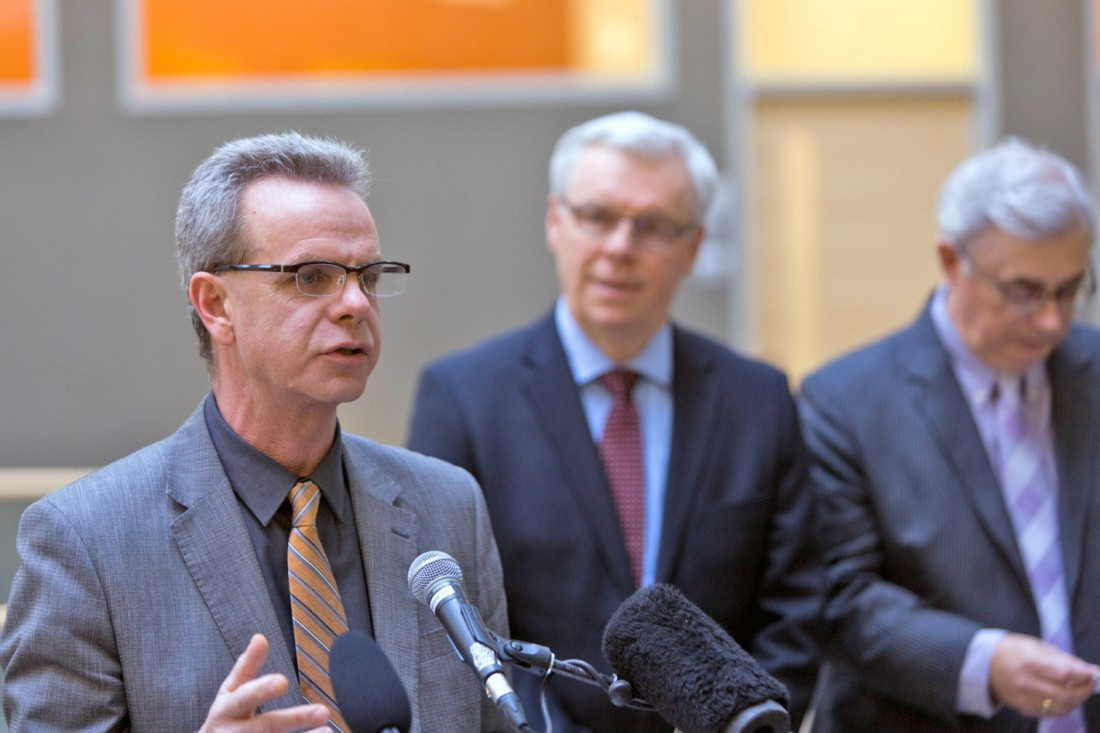Post-secondary investments
Province increases funding by four per cent for colleges and universities
At a press conference at the University of Winnipeg on Jan. 7, Manitoba Premier Greg Selinger announced the province is increasing funding to colleges and universities by $27.9 million.
The four per cent increase to post-secondary funding brings the annual total to $710.8 million, according to a provincial release.
“We know that our colleges and universities provide opportunities for youth and help drive our economy,” Selinger says.
“Today, we’re showing our commitment to support students and post-secondary education in our province because we know that more people with access to a better education will translate into a well-trained workforce that’s ready for the jobs of tomorrow.”
Universities will see a two and a half per cent increase, while colleges will receive a two per cent increase.
As part of the province’s response to the Truth and Reconciliation Commission, $2.1 million will be dedicated to indigenous studies programming including a new masters of social work in indigenous knowledge at the University of Manitoba (U of M) and a Metis studies program at Brandon University. One million dollars in capital support will go toward the National Centre for Truth and Reconciliation at U of M.
“Indigenous education is fundamental to the period of history that we’re in right now, the period that we call the period of reconciliation,” Selinger says.
Though each university and college will receive $350,000 for funds to support indigenous culture on campus, no specific programs at U of W were singled out by the province in the announcement.
Other newly created programs include a joint bachelor of midwifery program at University College of the North and the University of Manitoba. Further support will go into the Manitoba Transfer Credit Portal, a program to transfer credits between institutions, and access to supports groups for indigenous, newcomer or marginalized students.
“A healthy system of post-secondary education is one that relies on public funds, not forcing students to pay high amounts of tuition fees, so it’s always positive when government is investing in post-secondary education,” Peyton Veitch, the president of the UWSA, says.
The funding will also support graduate studies programs in the form of a $2.25-million Manitoba Graduate Scholarship and the $4.5-million Manitoba Scholarship and Bursary Initiative.
“We can provide more opportunities for people to do cutting edge research that allows them to develop knowledge and skills that will make a difference throughout their entire careers,” Selinger says.
“One of the strongest indicators of economic prosperity is a well-educated population, so these investments for students in colleges and universities mean that Manitoba’s economy will be strong in the future.”
Dr. Annette Trimbee, the president and vice-chancellor of the University of Winnipeg, says this investment will aid students in realizing their potential.
“We’re grateful that the province of Manitoba has made an ongoing commitment to stable and predictable funding,” Trimbee says.
“I think of this as a tremendous investment in the future of Manitoba because what we do here at universities and colleges is we grow the leaders of tomorrow.”
Published in Volume 70, Number 16 of The Uniter (January 21, 2016)







